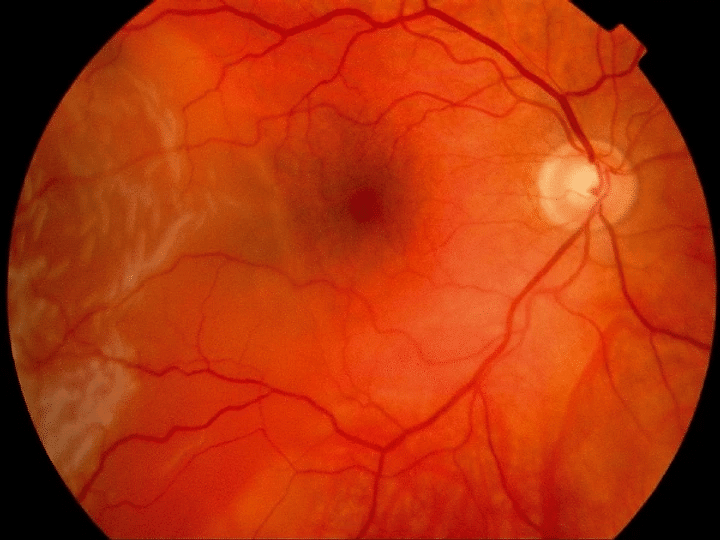There are speckled shapes in my vision
Speckled shapes in the vision are more commonly known as floaters. They appear as tiny specks which can be seen in the field of vision. Speckled shapes are created when small clumps form in the eyes’ clear jelly-like substance, the vitreous humour, which is found in the eyeball.

The specks or floaters are actually suspended in the jelly so they move when your eyeball moves. If you’ve ever tried to look directly at them, you have probably noticed that they seem to disappear. When looking at light-coloured areas such as the blue sea, blue sky or a white wall, specks or floaters tend to increase.
Different shapes and sizes
Specks or floaters come in different shapes and sizes. They can look like:-
- small dots
- threads
- tiny hairy clumps
Generally speaking, speckled shapes come with ageing and are quite harmless. If you do experience an increase in their number, this could be an indication of damage to certain internal structures of the eye. Seek professional help if you’re concerned in any way.
Other causes of speckled shapes in the eyes
In the main, speckled shapes or floaters in the eyes are caused by getting older. They can, however, occur as a result of other conditions or diseases like:-
- inflammation at the back of the eye
- a torn retina
- bleeding in the eye
- eye medications or eye surgery
Speckled shapes may look to you as black or grey specks, strings or cobwebs which drift about when your eyes move. Small microscopic fibres within the vitreous humour tend to clump together casting tiny shadows on your retina. If you sometimes see light flashes or lose part of your peripheral vision, then you need to see a specialist without delay.
The myths of speckled shapes
Speckled shapes in the vision can result in blindness – this is not true. At worst, partial vision might occur.
If you have specks in one eye, you will develop them in the other eye – not true although it is very common to have the symptoms in both eyes.
When should I visit my local optician
Don’t worry too much, most specks or floaters in the eyes are harmless. They can be a little annoying, however, they will fade over time. When it comes to treatment, some people choose to have surgery to alleviate the problem of specks or floaters. Most optometrists are only willing to perform surgery in rare cases if vision is seriously deteriorating. The surgical procedure for this is vitrectomy which involves removing the gel-like substance from the eye. A saline solution is then used to replace the vitreous humour.
Related articles





